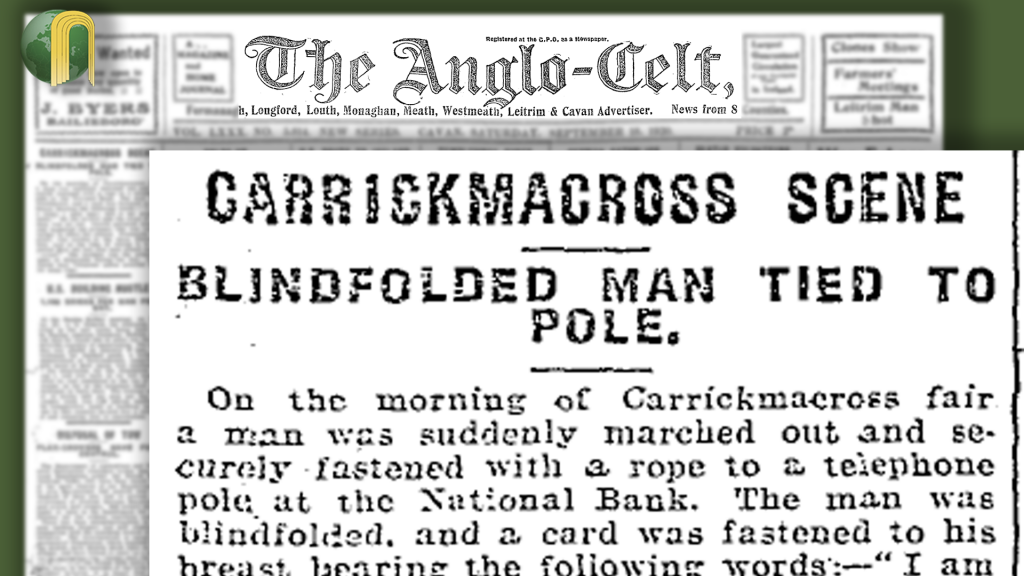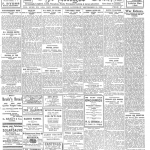
One of the favoured methods of enacting justice during the War of Independence was to publicly shame a person who was deemed to have committed a crime or ran foul of the IRA for some reason.
It was also the IRA’s, or the Republican police’s way of dealing with petty criminals who were using the war as a pretext to carry out crimes. This public shaming was meant to embarrass a person before the community and also meant as a deterrent to others from committing similar crimes or misdemeanours. In Carrickmacross, county Monaghan in September 1920 a man was marched before the National bank and tied with a rope to a telephone pole. The man was blindfolded and a card attached to his chest with the following inscription: ‘I am a thief: I stole eggs, this is my punishment’. On the reverse side the name of the man was printed. Within minutes a crowd had gathered to witness the spectacle and so the public shaming commenced. Eventually his sister came to his rescue and took him from the pole but she too was soon placed under arrest. The operation was carried out by the ‘Volunteer police’ who guarded the man for a considerable time. A week earlier a railway engine driver had been tied to a pole in a similar fashion in Talbot Street, Dublin by the IRA and a placard bearing the words ‘SCAB’ placed on his chest.
Source: Anglo-Celt 1846-current, 18.09.1920, page 1
 Anglo_Celt19sep1920_front
Anglo_Celt19sep1920_front
 Anglo_Celt19sep1920_front
Anglo_Celt19sep1920_front
